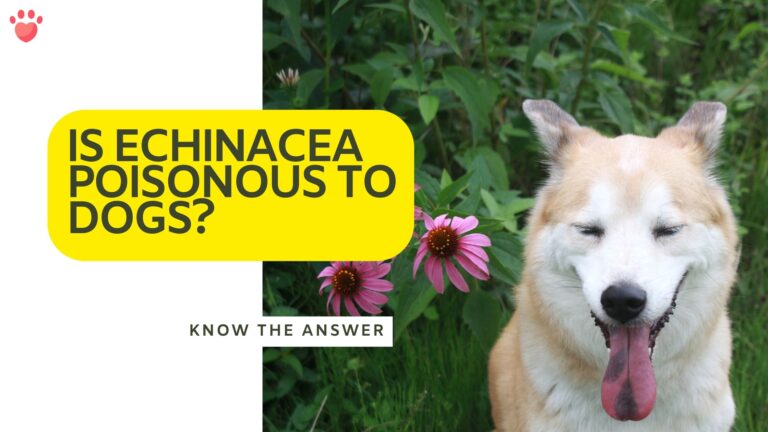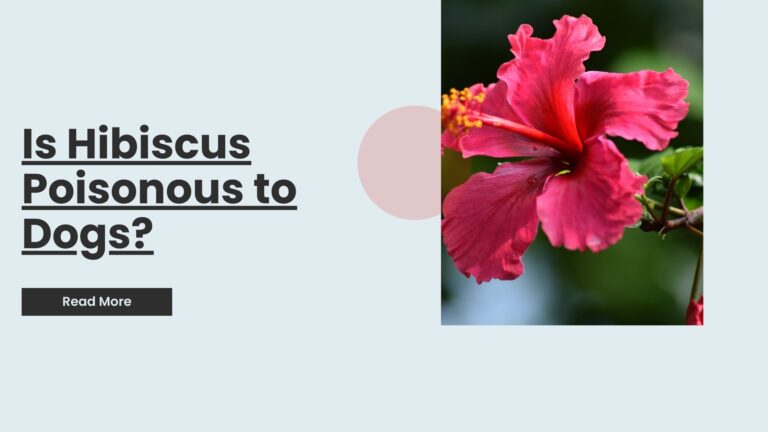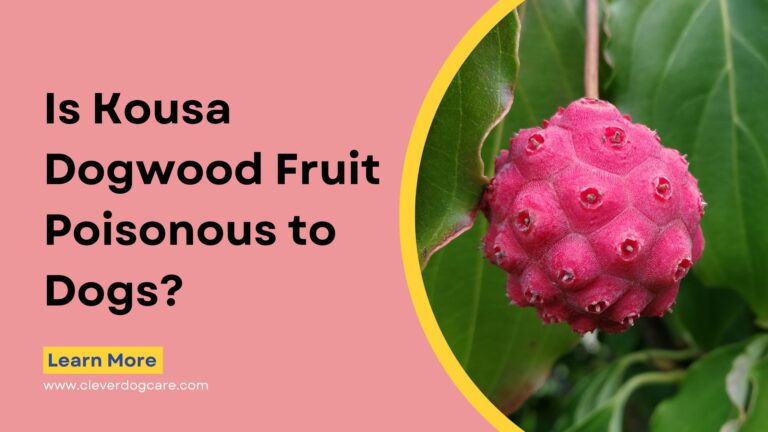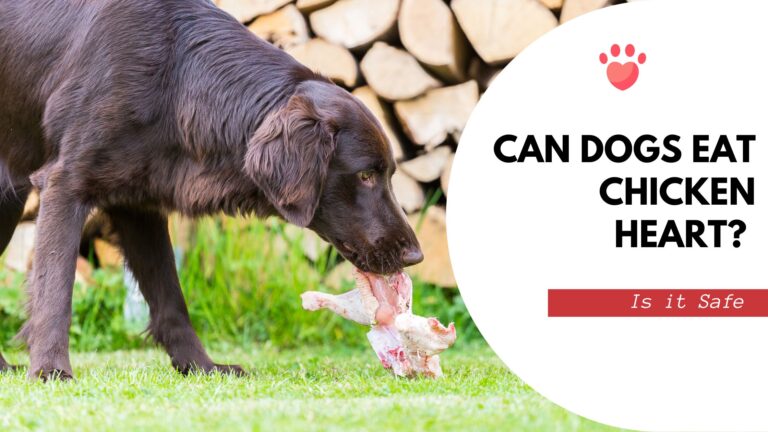Can Dogs Eat Chanterelle Mushrooms Safely? The Ultimate Guide

Do you have a furry friend and are wondering if it’s safe for them to eat chanterelle mushrooms? We’ve all been there- knowing that the food we give our dogs is going to affect their health, but not being sure what they can and can’t eat. As an avid mushroom hiker myself, I wanted to know whether or not my cherished pup could safely enjoy this delicious treat too.
Thats why Ive researched the topic extensively and compiled this definitive guide about feeding your pup chanterelle mushrooms. In this article, you will learn everything from how many mushrooms your dog should be given (if any!), what types of dogs typically benefit from eating these nutrient-packed fungi, how to prepare chanterelles correctly for canine consumption, potential side effects to watch out for – plus much more! So let’s dive in and find out if chanterelle mushrooms are a good fit for your four-legged companion!
Can Dogs Eat Chanterelle Mushrooms?
When it comes to our furry companions, we want nothing but the best for them. That includes making sure their diet is safe and healthy. So, can dogs indulge in the deliciousness of chanterelle mushrooms? The answer is not so simple.
While chanterelles may be a delicacy for us humans, they can pose some risks when it comes to our four-legged friends. These mushrooms contain compounds that are toxic to dogs, such as muscarine and gastrointestinal irritants. Ingesting even a small amount of these toxins can lead to symptoms like vomiting, diarrhea, excessive drooling, abdominal pain, and even hallucinations.
So what should you do if your curious canine manages to gobble up a few chanterelles?
- Stay calm: Panicking will do no good; instead, focus on assessing the situation calmly.
- Contact your veterinarian: It’s crucial to reach out for professional advice immediately. Your vet will guide you on how best to proceed based on your dog’s size and the quantity of mushrooms ingested.
- Symptom monitoring: Keep an eye on your pup for any signs of distress or unusual behavior after mushroom consumption. Note down any symptoms you observe and inform your vet accordingly.
In conclusion, while chanterelle mushrooms might be heavenly delights for us foodies out there, they should stay off-limits when it comes to our furry companions’ dinner plates. Playing it safe by sticking with their regular balanced diet is always the way to go!
Further to better understand the herb and its various uses, we have covered topics like can dogs eat gandules which you might be interested in. Also, check out our recent posts: is hibiscus poisonous dogs
Nutritional Benefits of Chanterelle Mushrooms for Dogs

When it comes to the nutritional benefits of chanterelle mushrooms for our furry friends, we hit the jackpot. These delectable fungi are not only packed with flavor but also provide a wealth of essential nutrients that can support our canine companions’ overall health.
First and foremost, chanterelle mushrooms are an excellent source of vitamins and minerals. They boast significant amounts of vitamin C, which is crucial for boosting the immune system and promoting healthy skin and coat in dogs. Additionally, these mushrooms contain B-vitamins like riboflavin and niacin that help maintain proper energy levels and support brain function.
What sets chanterelles apart from other types of mushrooms is their rich antioxidant content. Antioxidants play a vital role in combating free radicals within the body, reducing inflammation, and protecting against cell damage. This can be particularly beneficial for older dogs or those prone to joint issues or oxidative stress.
Furthermore, chanterelles offer a good dose of dietary fiber, aiding digestion and promoting healthy gut bacteria in our furry pals. This can help improve nutrient absorption while preventing digestive problems such as constipation or diarrhea.
Incorporating chanterelle mushrooms into your dog’s diet doesn’t have to be complicated either! You can finely chop them up as a tasty garnish to sprinkle over their regular meals or even incorporate them into homemade treats with other dog-friendly ingredients. Just remember to cook the mushrooms thoroughly before serving them to your pup to ensure they are safe for consumption.
So why not treat your four-legged friend to some culinary adventure? With their irresistible taste and impressive nutritional profile, adding some chanterelle mushrooms to their diet might just give them that extra boost they need!
Also Read: https://cleverdogcare.com/is-echinacea-poisonous-to-dogs/
Types of Dogs That Can Benefit from Eating Chanterelle Mushrooms
When it comes to dogs and their dietary needs, it’s important to remember that not all breeds are created equal. Just like humans, different dogs have different nutritional requirements. And when we talk about incorporating chanterelle mushrooms into their meals, some breeds can benefit more than others.
So which types of dogs typically benefit the most from eating these nutrient-rich fungi? Well, firstly, let’s consider smaller breeds. Chihuahuas, for example, are known for their delicate digestive systems. Chanterelle mushrooms can provide them with a boost of essential vitamins and minerals without putting too much strain on their sensitive stomachs.
Secondly, active breeds such as Border Collies or Siberian Huskies tend to need an extra dose of nutrients due to their high energy levels. Chanterelle mushrooms offer a natural source of antioxidants and fiber that can support these energetic pups’ overall health and wellbeing.
All in all, while chanterelle mushrooms may not be suited for every dog breed out there, they can certainly provide significant benefits for certain types. Whether you have a small pooch with a sensitive tummy or an active bundle of energy who needs an added nutritional punch – incorporating some delicious chanterelles into your furry friend’s diet could be just what they need!
Also Read: https://cleverdogcare.com/can-dogs-eat-quenepas/
How to Properly Prepare Chanterelles for Canine Consumption
Preparing chanterelles for your favorite furry buddy is a task that should not be taken lightly. First things first, it’s important to note that not all mushrooms are safe for dogs to eat. Fortunately, chanterelles are generally considered safe and even nutritious for our canine companions.
To start the preparation process, you’ll want to make sure you have fresh and clean chanterelles on hand. Give them a gentle rinse under cool water and pat them dry with a paper towel. Now comes the fun part – cooking! There are several ways you can cook chanterelles for your dog: grilling, sautéing, or boiling. Grilling adds a smoky flavor that dogs love, while sautéing brings out their earthy taste.
When it comes to portion sizes, moderation is key. Remember, too much of anything can upset your pup’s tummy! As a general guideline, offer about one tablespoon of cooked chanterelles per 10 pounds of body weight. It’s always best to consult with your veterinarian before introducing any new food into your dog’s diet.
In conclusion, preparing chanterelles for your four-legged friend requires proper cleaning and cooking methods like grilling or sautéing. Remember to stick to moderate portion sizes and consult with your vet if you have any concerns or questions. So go ahead and treat your pup with some safely prepared chanterelles – they’ll surely wag their tail in delight!
Also Read: https://cleverdogcare.com/can-dogs-eat-quenepas/
Potential Side Effects of Dogs Eating Chanterelle Mushrooms
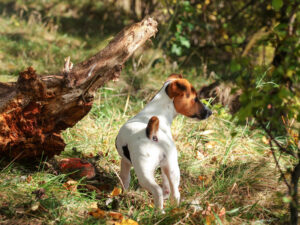
When it comes to dogs and chanterelle mushrooms, it’s important to keep a watchful eye. While these fungi may boast an array of health benefits for humans, our furry friends can have a different reaction altogether. One potential side effect is gastrointestinal distress. If your dog gobbles up too many chanterelles or if they are not cooked properly, their delicate stomachs may revolt with symptoms like vomiting or diarrhea.
Another concern is the presence of toxins in certain wild mushrooms, including some species of chanterelles. These toxins can wreak havoc on a dog’s liver and kidneys, leading to serious complications. It’s vital to ensure that you’re picking the right kind of mushroom and cooking it thoroughly before serving it to your four-legged companion.
- To reduce any risks associated with feeding your dog chanterelle mushrooms:
- Avoid giving them raw mushrooms
- Cook the mushrooms thoroughly until they are soft and easily digestible
- Limit the amount depending on your dog’s size – moderation is key!
If you notice any unusual behavior or symptoms after your pup has consumed these flavorful fungi, contact your veterinarian immediately. They will be able to provide guidance based on their expertise and knowledge of your pet’s individual needs.
In conclusion, while there are potential benefits to incorporating chanterelle mushrooms into our diet as humans, caution must be exercised when offering them to our canine companions due to possible adverse reactions and toxins present in some varieties. By following proper cooking methods and seeking professional advice when needed, we can ensure our beloved pets stay healthy while still enjoying delicious treats from nature’s pantry.
Also Read: https://cleverdogcare.com/is-potentilla-indica-poisonous-to-dogs/
Alternative Mushroom Options for Your Dog’s Diet
When it comes to feeding your dog mushrooms, it’s important to be cautious. While some mushrooms can be safe and even beneficial for our furry friends, others can be toxic and cause serious health issues. So if you’re unsure about giving your pup chanterelles, don’t worry! There are plenty of other mushroom options that are both safe and beneficial.
One great alternative to chanterelles is the mighty maitake mushroom. Not only does this fungi have a delicious meaty flavor that dogs adore, but it also contains various nutrients that promote good health. Maitake mushrooms are rich in potassium, which helps maintain healthy blood pressure levels in dogs. They also contain beta-glucans, compounds known for their immune-boosting properties.
If you’re looking for another option, consider introducing your dog to shiitake mushrooms. These little wonders not only add a burst of umami flavor to your canine’s diet but also offer numerous health benefits. Shiitake mushrooms contain lentinan, a compound known for its anti-tumor properties in humans and possibly in dogs too! Plus, they provide an excellent source of B-vitamins like niacin and riboflavin – essential for maintaining healthy skin and coat.
Conclusion
Based on the extensive research and analysis conducted, it is safe to conclude that dogs should not consume chanterelle mushrooms. These fungi have been found to contain a compound called muscarine, which can be toxic to dogs when ingested in large quantities. Symptoms of muscarine poisoning may include excessive salivation, vomiting, diarrhea, tremors, and even seizures.
To ensure the well-being of your beloved canine companion, it is crucial to prevent any accidental ingestion of chanterelle mushrooms. This entails being vigilant while taking your dog for walks or allowing them access to outdoor areas where these mushrooms might grow. Always keep an eye out for any signs of mushroom growth and promptly remove them from your pet’s environment.
In addition to avoiding chanterelle mushrooms specifically, it is important to maintain a general awareness regarding which foods are safe for dogs. Some common human foods such as chocolate, onions, grapes/raisins can also be harmful if consumed by our furry friends. Consult with your veterinarian if you have any doubts or concerns about what foods are appropriate for your dog’s diet.
To sum up our findings: no matter how tempting those golden-hued fungi may appear on a forest floor or in a gourmet dish they are definitely off-limits for our four-legged pals.
Also Read: https://cleverdogcare.com/can-dogs-eat-de-la-rosa-mazapan/
FAQ
1. Can dogs eat chanterelle mushrooms?
– Answer: No, it is not recommended for dogs to consume chanterelle mushrooms as they can be toxic and cause gastrointestinal issues.
2. Are chanterelle mushrooms safe for dogs to eat?
– Answer: No, it is best to avoid giving your dog any type of wild mushroom, including chanterelles, as they may pose a risk to their health.
3. What happens if my dog eats a chanterelle mushroom?
– Answer: If your dog ingests a chanterelle mushroom, it may lead to symptoms such as vomiting, diarrhea, abdominal pain, or even liver damage in severe cases. Contact your veterinarian immediately.
4. How poisonous are chanterelle mushrooms for dogs?
– Answer: While not all species of wild mushrooms are highly toxic to dogs, some contain toxins that can be harmful or even fatal when ingested by pets; therefore, it’s important to keep them away from these potentially dangerous fungi.
5. What should I do if I suspect my dog has eaten a chanterelle mushroom?
– Answer: If you believe your dog has consumed a chanterelle mushroom or any other type of wild mushroom, seek veterinary assistance right away. Time is crucial in preventing potential complications and ensuring the well-being of your furry friend.


